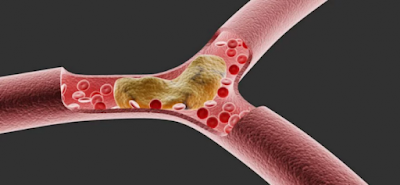Elevated triglycerides, also known as hypertriglyceridemia, is when the blood level for triglycerides is above the normal range. Symptoms usually do not appear. However, increased triglycerides are considered to be unfavorable for the cardiovascular system, especially if cholesterol levels are adversely altered at the same time. The values can increase due to congenital deficiencies, but also due to improper nutrition, illnesses and certain medications.
The correct term for triglycerides is triacylglycerols. More often, however, they appear as triacylglycerides or triglycerides. They used to be called neutral fats. They serve the body mainly as an energy store.
 |
| hypertriglyceridemia |
Hypertriglyceridemia Symptoms
According to most guidelines, triglyceride levels are considered elevated if the level is more than 180 mg/dl or 2.0 mmol/l in adults. However, there are other assessments. In some cases there is a limit of 200 mg/dl (2.3 mmol/l). Sometimes measured values from 150 mg/ml (1.7 mmol/L) are considered to be borderline.
Usually, elevated triglycerides do not cause any symptoms. But if the values rise very sharply (1000 mg/dl and more), the pancreas can become inflamed.
Elevated triglyceride levels, however, encourage deposits to form more quickly on the walls of the arteries (arteriosclerosis). This increases the risk of cardiovascular diseases such as coronary artery disease, heart attack and stroke. However, the influence of elevated triglyceride levels is small compared to other risk factors such as high cholesterol, high blood pressure, diabetes mellitus and smoking. Nevertheless, many experts advise reducing elevated triglyceride levels, especially if cholesterol levels are changing at the same time (elevated LDL cholesterol and reduced HDL cholesterol) and there may be other risk factors such as diabetes.
HypertriglyceridemiaTreatment
To normalize elevated triglyceride levels, sufferers should address the cause of the elevation. It is often a matter of poor nutrition, often in connection with being overweight. Then it makes sense to lose weight, replace sugar in diet and drinks with sweeteners such as saccharin, consume a lot of fiber and unsaturated fatty acids and reduce the amount of saturated fatty acids. If alcohol abuse is the cause, it should be stopped. If diabetes mellitus is the trigger, those affected should treat it consistently. The same applies to gout, hypothyroidism and other diseases that can lead to elevated triglyceride levels. Medications such as beta blockers, estrogens and glucocorticoids (e.g. cortisone) can also be triggers. Then you should inquire about alternatives.
Fibrates and nicotinic acid can be used as drugs if other measures do not have the desired effect.
